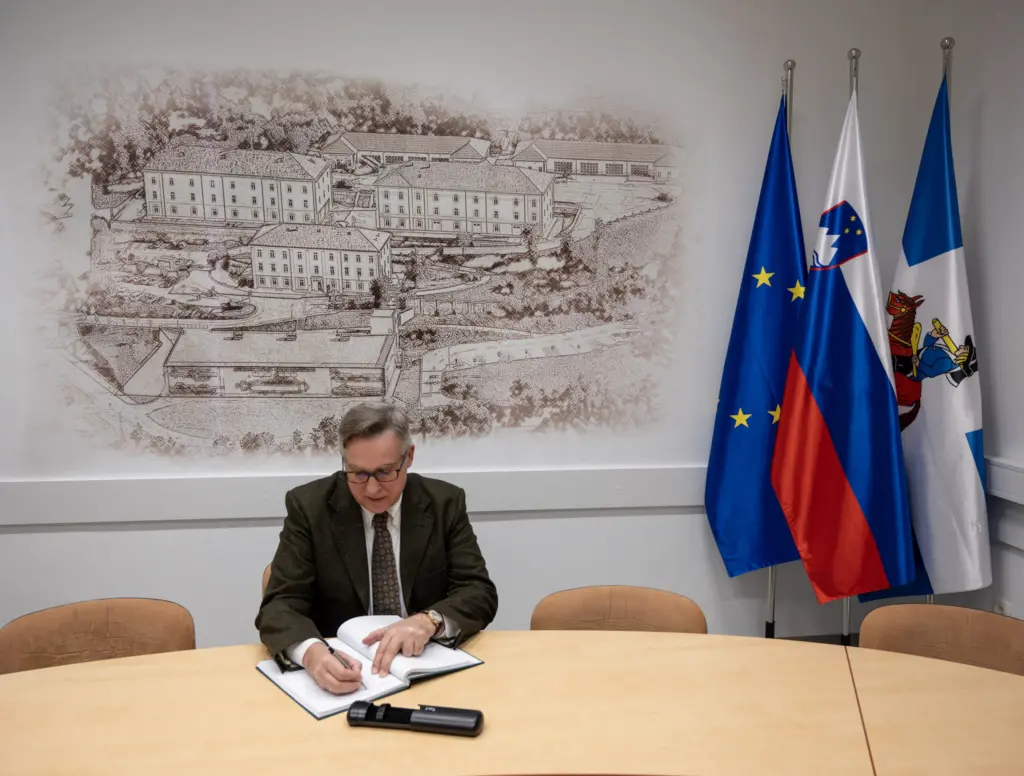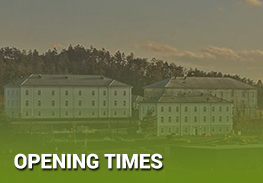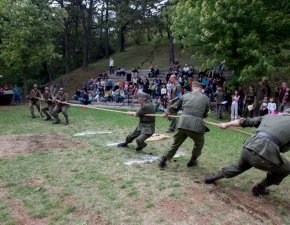
Screening of the Polish documentary film “1939: The Siege of Warsaw”
In Park of Military History, yesterday, on November 29th, a museum evening screening of the Polish documentary film “1939: The Siege of Warsaw” took place. The film features original archival footage from American correspondent and filmmaker Julien Bryan (1899–1974), who, with exceptional courage, traveled to Warsaw during the German invasion of Poland, documenting the tragic events of the German bombing and the siege of the Polish capital with his camera and camera. The film’s treatment of previously almost forgotten video material earned it the Golden Insurgent Award for Best Polish Documentary at the 14th Unconquered/Cursed International Film Festival.
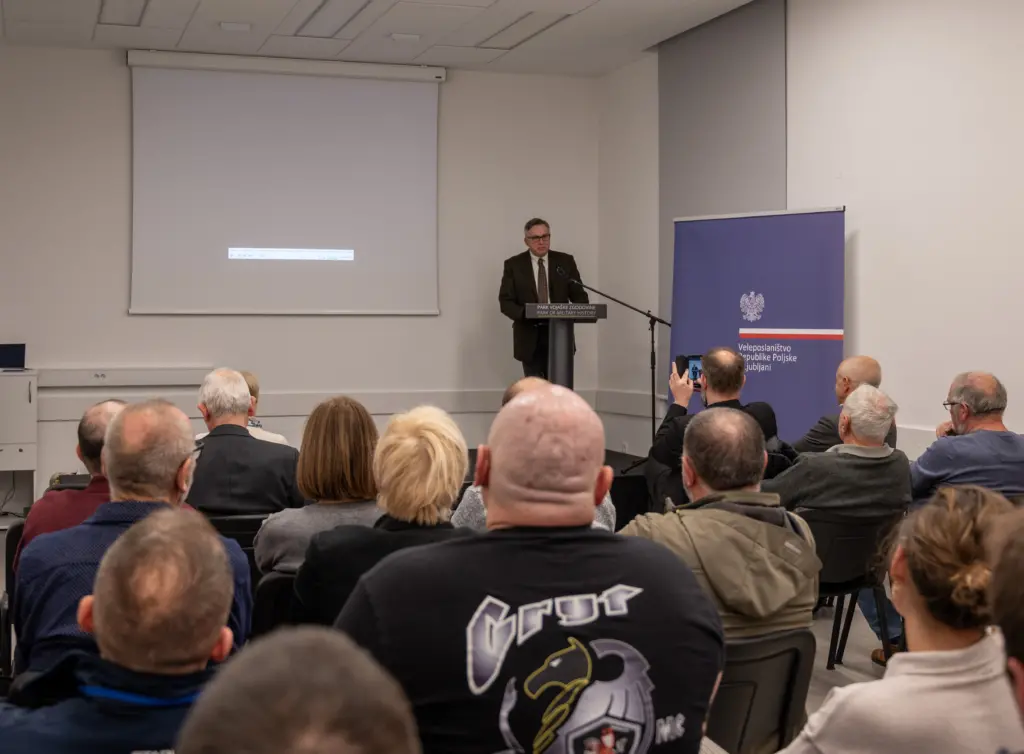
The event, organized in collaboration with the Embassy of the Republic of Poland in Ljubljana, was attended by His Excellency Krzysztof Olendzki, the Ambassador of the Republic of Poland, Consul Szymon Bialek, and Deputy Mayor of the Municipality of Pivka, Majda Godina, representing the local community. The documentary, with its historical yet still relevant content, attracted not only local viewers but also representatives of the Polish community in Slovenia.
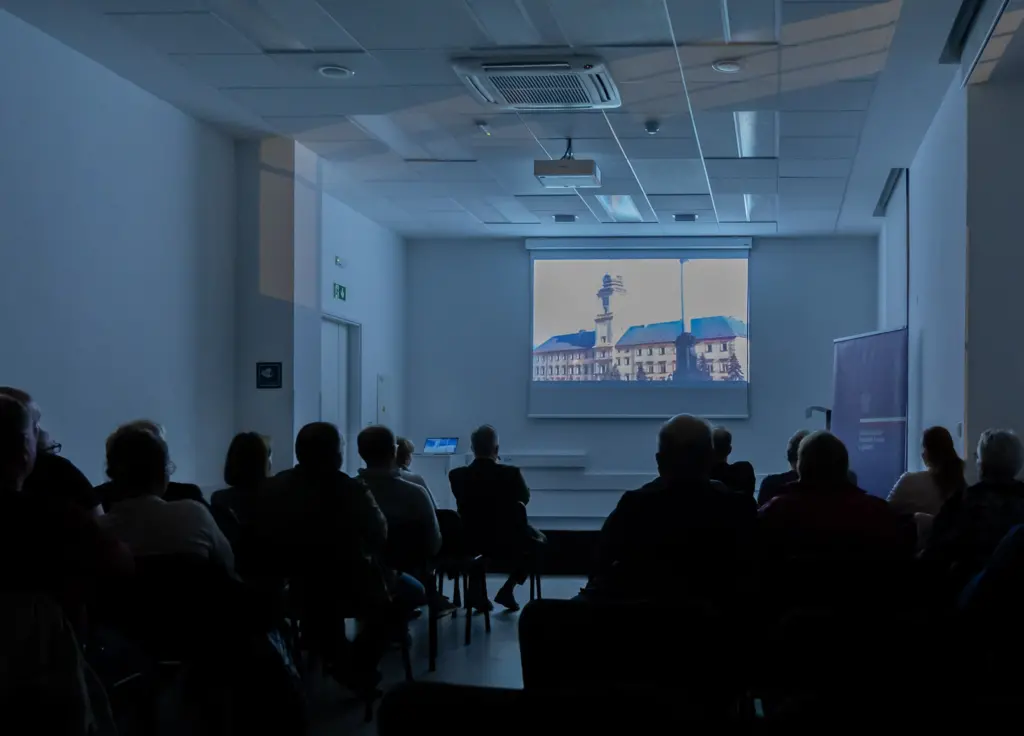
The director of the Park of Military History, Mr. Janko Boštjančič, welcomed the audience and emphasized the importance of reviving historical memory in his introductory address. He pointed out that forgetting historical lessons leads to their repetition. The Polish ambassador also addressed the horrors of war, particularly felt by Poland, highlighting the ongoing issue of compensating for the immense war damage caused by Germany in Poland during his welcoming speech.
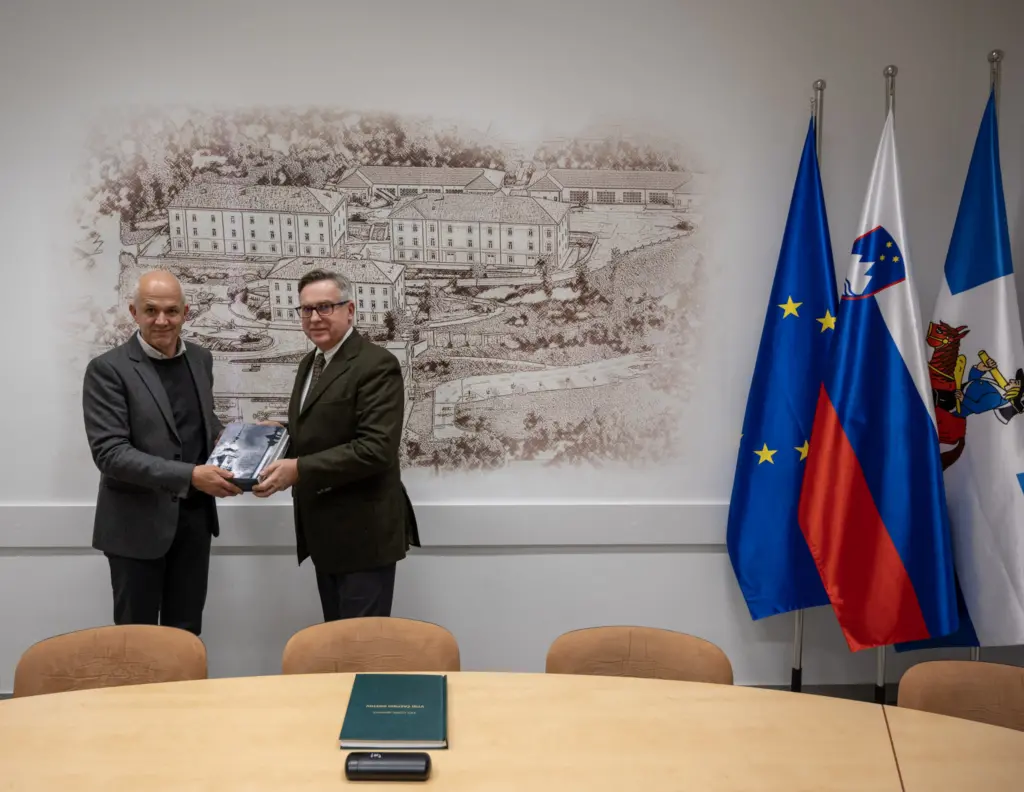
At the conclusion of the event, the Polish ambassador signed the Guest Book, expressing sincere gratitude to the Park for the opportunity to screen the film, which serves as a warning against the repetition of future wartime tragedies. On this occasion, the Park of Military History received a copy of the study “The Report on the Losses Sustained by Poland as a Result of German Aggression and Occupation During the Second World War, 1939–1945,” as a gift from the Polish ambassador, for which they sincerely thank him, as it will be a valuable addition to the museum’s library.
